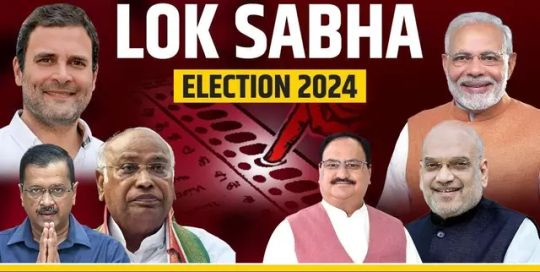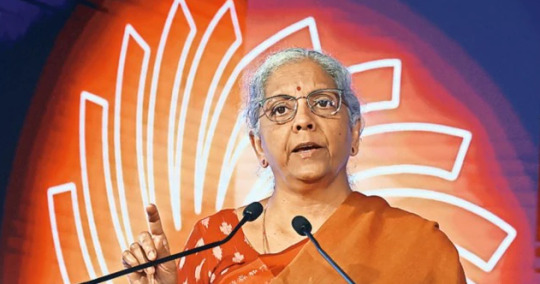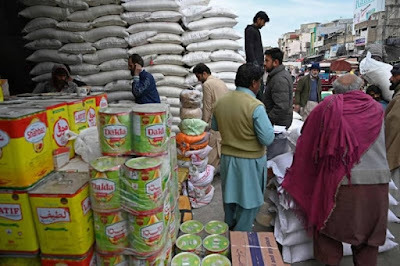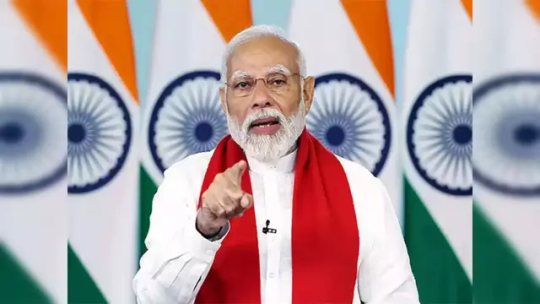#Economic reforms
Text
Ignorance seems soo nice I can see why people would opt for that. Imagine consuming unethically without a care. Imagine living however you want and still be able to sleep at night. Imagine being unfamiliar with the concept of accountability.
#anti genocide#free palestine#boycott divest sanction#jews for palestine#free congo#free drc#free sudan#labor rights#child labor#slave labor#ethically sourced#accountability#consumerism#late stage capitalism#economic justice#intersectional social justice#intersectional activism#economic reforms#wealth redistribution#environmental justice#israeli occupation#colonialism#colonial violence#boycott disney#boycott starbucks#boycott mcdonalds#grassroots activism#autistic thoughts#social responsibility#environmental responsibility
8 notes
·
View notes
Text
“Only fools, pure theorists, or apprentices fail to take public opinion into account.”

Jacques Necker was a Genevan banker and statesman who served as finance minister for Louis XVI. He was a reformer, but his innovations sometimes caused great discontent.
Born: 30 September 1732, Geneva, Switzerland
Died: 9 April 1804, Geneva, Switzerland
Swiss Origins: Necker was born in Geneva, Switzerland, in 1732. His Swiss background made him a foreigner in the French political landscape, and this sometimes influenced the perception of his policies.
Self-Financed Publication: Necker was known for his publication titled "Compte Rendu," or "Report on the Finances." This document, which detailed the state of France's finances, was unique in that Necker personally financed its publication. This move aimed to showcase transparency and gain public support.
Resignation through Illness: In 1781, Necker resigned from his position as Finance Minister, citing health reasons. His resignation was accepted, but he continued to influence French politics from behind the scenes. He was later recalled to office in 1788.
Criticized by Revolutionaries: Despite being initially celebrated for his efforts to improve financial transparency, Necker faced criticism from revolutionary figures like Maximilien Robespierre. They accused him of being too sympathetic to the monarchy and not fully supporting the revolutionary cause.
Exile in Switzerland: After the fall of the Bastille in 1789 and the escalation of the French Revolution, Necker resigned once again. Fearing for his safety, he sought refuge in Switzerland. His departure marked the end of his active political career.
#Jacques Necker#French Revolution#Finance Minister#Louis XVI#Economic Reforms#Enlightenment#Transparency in Government#Swiss Banker#Statesman#Political Reform#Public Finances#1789 Crisis#National Assembly#Royal Finances#Dismissal from Office#Necker Reports#French Monarchy#Social Unrest#Financial Management#Legacy of Jacques Necker#quoteoftheday#today on tumblr
1 note
·
View note
Text
The Indian Stock Markets and General Elections: Analyzing the Reactions in 2004, 2009, 2014, and 2019
The Indian stock markets, like their counterparts around the globe, are significantly influenced by political events, with elections being one of the most critical.
The general elections in India not only determine the political leadership but also set the tone for economic policies and reforms that can impact investor sentiment and market performance.
This article delves into the reactions of…

View On WordPress
#2004 general election#2009 general election#2014 general election#2019 general election#Bharatiya Janata Party (BJP)#Business-friendly environment#Economic growth#Economic policies#Economic reforms#Election mandates#Election results#financial crisis#Fiscal policies#General elections#Indian National Congress (INC)#Indian Stock Markets#Investor sentiment#Market performance#Market reaction#Market Volatility#Monetary easing#National Democratic Alliance (NDA)#Policy continuity#Political events and markets#Political stability#Post-election reaction#Pre-election scenario#Sensex#Stock market trends#United Progressive Alliance (UPA)
0 notes
Text
"Nirmala Sitharaman: Optimism and Commitment on Mother's Day"
Finance Minister Nirmala Sitharaman shares her optimism and unwavering commitment to India’s progress in an exclusive interview with Prasanta Sahu and Shobhana Subramanian. She asserts the government’s determination to continue reforms and uphold schemes benefiting the underprivileged.

Sitharaman expresses confidence in the BJP’s electoral prospects, emphasizing that the party will secure a robust majority. Dismissing negative campaign narratives, she affirms that the government remains steadfast in its mission, unaffected by opposition rhetoric.
Addressing economic agendas, Sitharaman advocates for strategic privatization initiatives, emphasizing the importance of thoughtful decision-making to foster business growth. She discusses tax policies, acknowledging the need for careful evaluation and potential extensions in light of changing circumstances.
Reflecting on India’s attractiveness for foreign investment, Sitharaman acknowledges global uncertainties but remains committed to creating a conducive environment. She emphasizes ongoing efforts to engage with industry stakeholders and promote diverse sectors, particularly manufacturing.
Regarding monetary policy and inflation control, Sitharaman underscores the multifaceted approach required, with a focus on fiscal measures alongside monetary policy adjustments. She highlights the interconnectedness of global economic factors and the need for nuanced strategies.
Looking ahead, Sitharaman reaffirms the government’s commitment to progressive reforms, with a focus on frontier sectors and leveraging technology for transparent governance. She reassures continued support for schemes benefiting marginalized communities, underscoring the government’s dedication to inclusive growth.
0 notes
Text
Deciphering Modi: The Saga of Triumphs and Tribulations in Indian Democracy
### In Praise of Narendra Modi: A Chronicle of Unprecedented GeniusIn an era where mediocrity often masquerades as competence, Narendra Modi stands as a beacon of unparalleled brilliance, guiding India towards a utopian future previously unseen by the lesser mortals of politics. With a wave of his magic wand, Modi has transformed the Indian economy, making the mythical Midas blush in the…

View On WordPress
#2024#autocracy#blockbuster governance#blockchain#CAA#controversies#COVID-19 pandemic#deforestation#democracy vs. autocracy#demonetization#Digital India#digital transformation#dramatic irony#economic challenges#economic reforms#environmental degradation#environmental policy#Goods and Services Tax#governance failure#GST#Indian democracy#Indian economy#Indian politics#infrastructure development#internet accessibility#leadership style#Modi&039;s India#Modi&039;s legacy#Narendra Modi#NRC
0 notes
Text
نئی حکومت کو کون سی نئی اصلاحات لانے کی ضرورت ہے؟

نئی حکومت ایک ایسے وقت میں چارج سنبھالے گی کہ جب ہمارا ملک مختلف بحرانوں کی لپیٹ میں ہے۔ معاشی اعتبار سے بات کریں تو ہمارے ملک میں افراطِ زر کی شرح 25 فیصد سے زائد ہے، بجٹ خسارہ قومی آمدنی کا 7 فیصد ہے، توانائی کی قیمتیں اور اس کی عدم دستیابی صنعتوں اور صارفین کے لیے اہم مسئلہ ہے، مقامی اور غیرملکی قرضوں کی واپسی کی مہلت بھی ہمارے سر پر تلوار کی مانند لٹک رہی ہے جبکہ ملکی برآمدات کی شرح بھی انتہائی کم ہے۔ عوامی ترقی کے اعتبار سے دیکھیں تو دیگر ترقی پذیر ممالک کی نسبت ہمارے ملک میں نومولود بچوں کی اموات کی شرح اور خواتین کا فرٹیلیٹی ریٹ انتہائی بلند ہے، 5 سال سے کم عمر 58 فیصد بچے نشونما کی کمی کا شکار ہیں، 26 لاکھ (40 فیصد) بچے اسکول جانے سے محروم ہیں، ہر سال 80 لاکھ بچے پیدا ہوتے ہیں جن کے لیے ہمارے پاس نہ اسکول ہیں اور نہ ہی اساتذہ جبکہ سب سے بدتر تو یہ ہے کہ 39 فیصد عوام غربت کی لکیر کے نیچے زندگی گزارنے پر مجبور ہیں۔ گورننس کے اعتبار سے بات کریں تو ہمارا بلدیاتی نظام، جو عوام کی بڑی تعداد کو حکومتی معاملات سے منسلک کرتا ہے اور انہیں سہولیات فراہم کرتا ہے لیکن غیرمؤثر بلدیاتی نظام ہونے کی وجہ سے ہمارے شہری صحت، تعلیم اور دیگر بنیادی سہولیات سے محروم ہیں۔
درحقیقت گورننس کے تمام شعبہ جات میں ہی عوام کو سہولیات کی فراہمی کا فقدان ہے۔ مثال کے طور پر گزشتہ سال ہمارے سرکاری اداروں کو 700 ارب روپے کا خسارہ ہوا، ہمارے پاس ایک ایسی بیوروکریسی ہے جہاں میرٹ موجود نہیں، عدالتوں میں موجود مقدمات دہائیوں سے حل طلب ہیں اور ہماری پولیس خدمات فراہم نہیں کرتی بلکہ انہیں شہریوں پر ایک بوجھ سمجھا جاتا ہے۔ ان تمام مسائل کو دیکھتے ہوئے، مندرجہ ذیل وہ اصلاحات ہیں جو نئی حکومت کو کرنی چاہئیں۔ اگر آبادی کا 40 فیصد لوگ غریب اور ناخواندہ ہوں تو ایسے ملک کی معیشت کبھی بھی ترقی نہیں کر پائے گی جبکہ ناخواندہ افراد تعلیم اور ہنر سے محروم رہیں گے۔ اس کے بعد ہمیں حکومت کی مالی اعانت سے نمٹنے کی ضرورت ہے۔ ساتویں این ایف سی ایوارڈ کے بعد تمام وفاقی ٹیکسس کا تقریباً 63 فیصد صوبوں (آزاد جموں و کشمیر، گلگت بلتستان اور سابقہ فاٹا بھی شامل ہیں) کو ملتا، اس سے صوبوں کو بہت سی رقم ملی لیکن وفاق کے پاس اتنی دولت نہیں تھی کہ وہ سود کی ادائیگیاں کر سکتا۔

اگلے این ایف سی ایوارڈ یعنی پانچ برس میں وفاق کا حصہ 55 فیصد تک بڑھانا چاہیے اور صوبوں، اضلاع اور ڈویژن سے بھی کہا جائے کہ وہ اپنی ٹیکس وصولی خود کریں۔ یہ خیال کہ ایک حکومت ٹیکس جمع کرتی ہے اور دوسری حکومت اسے خرچ کرتی ہے، اس سے مالی بے ضابطگی ہوتی ہے۔ ذمہ دار وفاق کو صرف خرچ کرنے کا اختیار ہی نہیں بلکہ ٹیکس کی ذمہ داری بھی صوبوں تک منتقل کرنی چاہیے۔ مزید اصلاحات میں آئینی اعتبار سے مقامی حکومت کو بااختیار بنانا بھی شامل ہے اور اس حد تک بااختیار کہ صوبائی انتظامیہ اسے کمزور نہ کرسکے۔ اس کا مطلب یہ ہے کہ تعلیم اور صحت کو ضلع یا شہر کی سطح پر جبکہ پولیس اور انفرااسٹرکچر کو ڈویژن اور شہری سطح پر منتقل کیا جانا چاہیے۔ اس کا مطلب یہ بھی لیا جا سکتا ہے کہ منتخب کردہ تحصیل، ضلع، شہر اور ڈویژن کے ناظم کو اس وقت تک اپنے عہدے سے نہیں ہٹانا چاہیے جب تک ان کی جگہ کوئی اور منتخب نہ ہوجائے۔ سب سے اہم بات یہ ہے کہ ان اداروں کو پہلے سے طے شدہ فارمولے پر براہِ راست وفاقی تقسیم شدہ پول سے فنڈز دیے جائیں تاکہ انہیں صرف صوبائی انتظامیہ پر انحصار کرنے کی ضرورت نہ ہو۔
حکومت کا نجی شعبے کو اختیارات کی منتقلی بھی ایجنڈا میں شامل ہونا چاہیے۔ اس کا مطلب تمام سرکاری اداروں کی نجکاری اور مضبوط ضابطے بنانا ہے۔ یہ عمل سب سے پہلے پی آئی اے اور پاکستان اسٹیل ملز سے شروع کرنا ہو گا جوکہ پہلے ہی ایجنڈے میں شامل ہیں لیکن اس فہرست میں تمام توانائی، گیس کے پیداواری و تقسیم کار اور تیل کی پیداواری اور تقسیم کے اداروں کو بھی شامل کرنا ہو گا۔ فوری نجکاری کی اجازت دینے کے لیے قانون میں ضروری تبدیلیاں کی جانی چاہئیں (فی الحال اسے مکمل کرنے کے لیے کم از کم 460 دن درکار ہیں)۔ ہماری بجلی اور گیس کے تقسیم کار کمپنیز کو اپنے کُل اثاثوں پر منافع کی اجازت ہے جبکہ نجکاری کے بعد اس فارمولے کو تبدیل کرنے کی ضرورت ہے۔ نجکاری کے بعد ان کمپنیز کی قیمتوں کا انحصار اس بات پر ہو گا کہ انہیں کتنا منافع لینے کی اجازت ہے۔ حکومت کو احتیاط سے نیا فارمولا سوچنے کی ضرورت ہے تاکہ اضافی منافع کو تقسیم کیا جا سکے، بلوں کی وصولی میں بہتری کے بعد اور ترسیل اور تقسیم کے دوران ہونے والے نقصان کا تخمینہ بھی نجکاری کے بعد، صارفین اور کمپنیز کے درمیان طے ہونا چاہیے۔ اس نجکاری کا حتمی مقصد بجلی اور گیس کے لیے ہول سیل مارکیٹ کا قیا�� اور صارفین کے لیے قیمتوں میں خاطر خواہ کمی اور خدمات میں بہتری ہونا چاہیے۔
سرکاری اداروں کی نجکاری کے علاوہ بھی دیگر راستوں سے ہمیں حکومتی دائرہ اختیار کو محدود کرنا ہو گا۔ مثال کے طور پر وزارتوں اور ڈویژن میں کمی بالخصوص 18ویں ترمیم کے بعد جن علاقوں میں اقتدار منتقل ہوا وہاں کچھ اختیارات نجی شعبے کے سپرد کرنا ہوں گے۔ مثال کے طور پر فوڈ سیکیورٹی کی وزارت کا دفتر کامرس کی وزارت کی عمارت میں منتقل کیا جاسکتا ہے۔ یا پھر اسلام آباد اور گلگت بلتستان کے اسکولز چلانے والی وزارتِ تعلیم کو مقامی اختیارات میں دے کر پورے ملک میں قومی نصاب کے معیارات نافذ کرنے کی ضرورت ہے۔ ٹریڈنگ کارپوریشن آف پاکستان کو ختم کردینا چاہیے اور نجی سیکٹر کو اجناس کی برآمدات کرنے کی ذمہ داری دے دینی چاہیے۔ دنیا کے بیشتر ممالک اپنے لوگوں کی فوڈ سیکیورٹی کا کام ذمہ دارانہ طریقے سے کرتے ہیں لیکن اس کام میں کوئی بھی سرکاری کمپنی براہ راست تجارت اور درآمدات میں ان کا ساتھ نہیں دیتی۔ حکومت کی جانب سے گندم اور کھاد کا اسٹریٹجک ذخیرہ بنایا جاتا ہے۔ اگر حکومت نجی شعبے پر انحصار کرتی ہے تو اق��صادی طور پر وہ گندم اور کھاد کی زیادہ خریداری اور ذخیرہ کر سکے گی۔
پاکستان کی سخت معاشی حالت کو دیکھتے ہوئے وفاقی اور صوبائی حکومتوں کو ترقیاتی پروگرامز ختم کرنا ہوں گے۔ بچنے والی رقم شاید بے نظیر انکم سپورٹ پروگرام یا صوبے کے ماتحت چلنے والے پروگرامز کے ذریعے تقسیم کر دینی چاہیے اور ان پروگرامز کو جی ڈی پی کے ایک فیصد تک بڑھانا چاہیے۔ میری پسندیدہ اصلاح غریب بچوں کو نجی اسکولز میں تعلیم دلوانے کے لیے واؤچر فراہم کرنا ہے۔ سندھ اور پنجاب نے اس حوالے سے کامیاب پائلٹ پروگرامز بھی شروع کیے ہیں اور اب ان پروگرامز کو ملک بھر کے غریب بچوں تک رسائی دینی چاہیے ۔ طویل المدتی اقتصادی ترقی کے لیے شاید قانونی اصلاحات سے زیادہ اہم کچھ نہیں ہے کیونکہ ان کے نتیجے میں عدالتوں کی طرف سے بروقت اور متوقع فیصلے ہوں گے۔ اس سے حکومت کی زیادتیوں کو روکا جائے گا، غیر ملکی سرمایہ کاری میں سہولت ملے گی اور اشرافیہ کے مفادات کو عدالتی مقدمات کو اپنے فائدے کے لیے طول دینے سے منع کیا جائے گا۔ اختتام میں گورننس کا نظام بہتر بنانے کا سب سے مؤثر طریقہ بیوروکریٹس کی اہلیت کو بہتر بنانا ہے۔ اس حوالے سے عوامی خدمت کے شعبے میں اصلاحات لانی چاہئیں جن میں اسپیشلائزیشن، میرٹ پر ترقی اور ایسے عہدیداران کی ریٹائرمنٹ شامل ہونی چاہیے جو معیارات پر پورا نہ اترتے ہوں۔
اگر پاکستان کو دیگر ممالک سے مقابلہ کرنا ہے تو ہمیں اپنے لوگوں کو غربت سے نکالنا ہو گا، اس لیے یہ تمام اصلاحات انتہائی ضروری ہیں۔ بصورتِ دیگر ہم بحیثیت قوم یونہی بھٹکتے رہیں گے۔
مفتاح اسمٰعیل
بشکریہ ڈان نیوز
0 notes
Text

0 notes
Text
Y'know a movement I would Love to see?
"Members Not Expenses" or MNE for short.
It would be about banning wage labor and replacing it with a profit based pay system. Basically treat all workers as members of the business they work for, not as a business expense that their employers have to budget for.
Of course that's not the be-all end-all of economic reforms, but its a lot easier to take things one step at a time than to try to change an entire economic system all at once. I think this would be a damn good first step.
The demands/intents of the movement would be something like:
Ban wage labor. Make it illegal to base pay on a set number and instead require that pay be proportional to the profits over each pay period.
Tie CEO pay to employee pay; regardless of pay system, if the CEO wants to make more money they have to give their workers more
Make or edit budget regulations to prevent exploitation. (like making sure that CEOs don't just add their own pay to the budget to artificially decrease "profits" or use budget money for personal or not-related-to-that-company purchases.)
I have multiple ideas for profit-based pay systems that the movement could advocate for. I think any of them would be better than the wage labor system we have now but it would need to be discussed to decide which one is best.
Idea one is a simple divided profit system. It is just a basic, "the profits are divided equally between all members of the business." Easy to understand, easy to calculate. Downside is that some people may feel undervalued if they are doing more hours or more dangerous work for the same pay, meaning it may be difficult to fill more demanding positions.
Idea two is an hourly proportion system. In this version the profits would be divided by the total number of hours worked by every member in that pay period. That would give a per-hour value for that pay period, and each person would be paid a percentage of the profits based on their hours worked. This would reward time put in, but still has the problem of not necessarily rewarding more demanding positions if they work the same amount of time.
Idea three is an education credit division system. Each level of education required is another credit per hour. So a position that requires only a high school diploma would be one credit per hour but a position that requires a Phd would be five credits per hour. After each pay period the profits are divided by the total number of credits and members are paid their number of credits. This would reward education but only education, which would be great for people with more academic tendencies but pretty bad for those who prefer trades and more hands on stuff.
Idea four is a star division system. Basically, each position is rated between 1 & 5 stars based on difficulty in different metrics. The total number of stars is the number of credits that position gets paid for. Metrics would likely be something like education required, physical danger, psychological stress, physical demands, etc. So if a job was 1 star for education, 1 star for physical danger, 4 stars for psychological stress, and 2 stars for physical demands, that would be a 8 star position (probably like an office job or something like that). Profits would be divided by total number of stars and people would be paid the number of stars their position is worth. This rewards people based on the demands of their position in general. A potential downside is difficulty getting people stay as long as they are needed because there's no time based incentive. (I don't personally think it would be a big issue, but I understand that as a reasonable concern.) [this is my personal top choice]
Idea five is a combination of the hourly system and the star system. Instead of just determining a blanket amount of stars someone is credited for, the star system determines how many each person gets per hour. Same as usual, profits are divided by total number of stars and stars are distributed out. This is the same as the star system but this time with a time incentive. A potential downside I would be concerned about is employers rushing people, cutting corners, and understaffing to get people off the clock and increase their own pay portion.
So I'm curious, if you like this idea;
I'd love to discuss this if you think its an interesting idea. I only have my own perspective so I can't know or spot all potential flaws or ideas, and I would love to develop this into a fleshed out movement so that I can join the community and work toward the goals together.
0 notes
Text
Indira Gandhi and her contribution for the country

Indira Gandhi, daughter of India’s first Prime Minister, Jawaharlal Nehru, was the 3rd PM, and the first and only female prime minister of India. She was undermined by many, as she was a woman running the cabinet of male ministers but her boldness and strategical decision making made people realise her potential. She had contributed majorly to the development of the country.
Biography of Indira Gandhi
Indira Gandhi's early life and upbringing heavily influenced her political career. Born on November 19, 1917, in Allahabad, she witnessed firsthand the struggle for Indian independence and the sacrifices made by her father Jawaharlal Nehru and other freedom fighters. Her education, both in India and abroad, broadened her horizons and nurtured her passion for social justice.
Growing up in a household deeply involved in the struggle for Indian independence, Indira Gandhi was exposed to the fervor and sacrifices of her father and other freedom fighters. This upbringing instilled in her a strong sense of patriotism and an unwavering commitment to the welfare of the nation.
Indira Gandhi's education played a crucial role in shaping her worldview and nurturing her passion for social justice. She received her early education at the Modern School in Delhi, where she imbibed progressive ideas and imprinted her leadership qualities. Later, she pursued higher education at the University of Oxford in England, where she developed a deeper understanding of international affairs and politics. These formative years broadened her horizons and equipped her with the knowledge and skills necessary for her future political endeavors.
Married to Feroze Gandhi, a journalist and political activist, Indira Gandhi faced numerous challenges as a woman in a male-dominated political landscape. However, she defied societal expectations and emerged as a charismatic and influential leader in her own right.
Indira Gandhi's political career gained momentum when she joined the Indian National Congress party, which played a pivotal role in the struggle for independence. Under the guidance of her father, she quickly rose through the ranks and became an integral part of the party's leadership. Her sharp intellect, strong determination, and excellent organizational skills earned her respect and admiration within the party.
In 1966, following the sudden demise of Lal Bahadur Shastri, Indira Gandhi assumed the role of India's Prime Minister. As the country's first female Prime Minister, she faced immense challenges, both domestically and internationally. She implemented various policies aimed at addressing poverty, promoting agricultural self-sufficiency, and fostering economic development. However, her tenure was not without controversy and criticism. The declaration of a state of emergency in 1975 and subsequent suspension of civil liberties drew criticism from those who believed it undermined democracy.
Throughout her political career, Indira Gandhi exhibited strong leadership qualities and a firm commitment to social justice. She championed the cause of the underprivileged and marginalized sections of society, working towards reducing poverty and inequality. Her emphasis on empowering the rural population through land reforms and providing access to education and healthcare contributed to the overall development of the nation.
Indira Gandhi's political journey was marked by significant achievements as well as moments of turmoil. Her strong leadership during the Bangladesh Liberation War in 1971, which resulted in the creation of Bangladesh, showcased her diplomatic prowess and commitment to regional stability. However, her assassination in 1984 shocked the nation and left a void in Indian politics.
Despite the controversies surrounding her tenure, Indira Gandhi's contributions to the nation are undeniable. Her unwavering commitment to the welfare of the people, especially the marginalized, and her relentless pursuit of social justice continue to inspire generations of leaders. She remains an iconic figure in Indian politics, symbolizing strength, determination, and a visionary approach to governance.
Vision of Indira Gandhi
Indira Gandhi possessed a strong vision for a progressive and self-reliant India. She aimed to transform the country into a global power, focusing on economic development, self-sufficiency, and social welfare. Her vision included empowering marginalized sections of society, promoting gender equality, and bridging the rural-urban divide.
Philosophy of Life:
Indira Gandhi's philosophy of life revolved around the principles of resilience, courage, and dedication. She firmly believed in the power of democracy, secularism, and inclusive governance. Despite facing numerous challenges and criticism, she remained committed to her ideals and steadfast in her resolve to serve the nation.
Indira Gandhi and her contribution for the country
Indira Gandhi's tenure as Prime Minister witnessed both significant achievements and controversies. She implemented bold policies and initiatives that left a lasting impact on India's socio-political landscape.
1. Economic Reforms:
Indira Gandhi implemented economic reforms aimed at achieving self-sufficiency and reducing dependence on foreign aid. The nationalization of banks and the Green Revolution were among her notable economic policies that transformed India's agricultural sector and brought stability to the banking system.
2. Empowering the Marginalized:
Indira Gandhi championed the cause of the marginalized and downtrodden. She introduced pro-poor policies such as the Garibi Hatao (Eradicate Poverty) program, which aimed to uplift the socio-economic conditions of the underprivileged. Her focus on rural development and land reforms helped alleviate poverty and improve the lives of millions.
Read This Full ARTICLE, Click Here
1 note
·
View note
Text
Comparing the Political Styles and Achievements of Narendra Modi and Rahul Gandhi in India #NarendraModi #RahulGandhi #IndianPolitics #EconomicReforms
Prime Minister Narendra Modi and Rahul Gandhi are two prominent political figures in India. Narendra Modi is the current Prime Minister of India and a member of the Bharatiya Janata Party (BJP), while Rahul Gandhi is a member of the Indian National Congress (INC) and a former Member of Parliament.
Modi has been in office since May 2014 and is widely credited for implementing several important…

View On WordPress
#accountability#Bharatiya Janata Party#economic reforms#education#food security#Indian National Congress#Indian Politics#Narendra Modi#Prime Minister#Rahul Gandhi#rural development#social reforms#transparency#women&039;s empowerment
0 notes
Text
Capitalism and colonialism took community away from us and I want it back. I’ve heard about it from my grandparents and in books and articles online. All throughout history and still today in some parts of the world. People looking out for each other. Regularly. Relentlessly. Neighbors watching each others children, having enough food to share and actually sharing it, being invested in each others lives because everyone has different strengths.
Today community has been strategically painted as a weakness and something to be skeptical of because it is a threat to the very foundations of capitalism. And that’s a real fucking shame because in reality, growing up with community and still having that through adulthood would probably make most people generally happier and less perpetually tired and stressed. It is renewable resilient versatile adaptable self-sustaining and kind of the Ultimate Resource.
#I wish I could bake a cake filled with rainbows and smiles and everyone would eat and be happy#fuck capitalism#global community#local community#communities#community#fuck colonialism#fuck western media#settler colonialism#land back#indigenous liberation#indigenous communities#indigenous culture#human rights#renewable resources#sustainability#intersectional social justice#disability advocacy#social reformer#racial justice#wealth redistribution#healthcare reform#economic justic#environmental justice#generational healing#ancestral healing#industrialization#anti imperialism#religious tolerance#coexistence
22 notes
·
View notes
Text
Potential Impacts on India if Narendra Modi Loses the 2024 Lok Sabha Election: Stock Markets, Economy, and Growth
If Narendra Modi loses in the Lok Sabha election 2024, it would represent a significant political shift for India, potentially impacting the stock markets, economy, and overall growth trajectory of the country. Here’s a detailed analysis of the potential impacts:
Stock Markets
Immediate Market Reaction:
Volatility and Uncertainty: The initial reaction of the stock markets is likely to be one…

View On WordPress
#2024 Lok Sabha Election#Economic growth#Economic reforms#EconomicGrowth#EconomicPolicy#Foreign Investment#IndiaGrowth#Indian Economy#Indian Stock Markets#IndianEconomy#Investment#LokSabhaElection2024#Market Volatility#MarketVolatility#Narendra Modi#NarendraModi#Policy Changes#Political Impact#PoliticalImpact#StockMarkets
0 notes
Text
“The current model of higher education, one featuring runaway spending and punitive intellectual rigidity, cannot survive.”
#affordability#cancel culture#censorship#college#college admissions#college readiness#critical thinking#economics#education#education reform#free speech#freedom of speech#higher education#online education#political polarization#remote learning#student loans#teaching#Online education
64 notes
·
View notes
Text
Napoleon and Sugar Production and Trade
A little bit about how the sugar industry was transformed during the Napoleonic Wars. Specifically, how sugar beet substituted and replaced sugar cane.
From Robert M. Harveson, History of sugarbeets, University of Nebraska-Lincoln, Institute of Agriculture and Natural Resources (source)
“Sugar was only obtained from the tropical sugar cane and was prohibitively expensive for most Europeans. During the early 1800’s most sugar was obtained from the West Indies. After supplies were cut off by the English blockade of continental Europe during the Napoleonic Wars, the demand for sugar grew throughout Europe. Napoleon encouraged new research with sugar beets, and between 1810 and 1815, over 79,000 acres were put into production with more than 300 small factories being built in France.”
From R. N. Dowling, Sugar Beet and Beet Sugar:
“Napoleon I, brought real life into the new industry. As a farsighted statesman, he recognized the great advantages connected with a future beet sugar industry that would produce at home all the sugar needed by his people. For this reason he at once, by a decree of 1812, appropriated 100,000 hectares, or 247,100 acres, exclusively for the cultivation of sugar beets and 1,000,000 francs for experiments in connection with beet raising and sugar extraction.”
The trade war:
“The interest of Napoleon was due to the continental blockade that excluded all products manufactured in England and her colonies from the European markets. As a consequence the price of cane sugar rose to an extraordinary height: it was more than 30 cents per pound in the period from 1807 to 1815. Under such circumstances the erection of beet sugar factories was a very profitable investment of capital and it is, therefore, not to be wondered at that in France, as early as 1812 some 40 factories were in operation, working up 98,813 tons of beets obtained from 16,758 acres, and yielding a total output of 3,300,000 Ibs. of sugar. For the first time in the history beet sugar came to compete with the tropical product. From very modest beginnings in the first quarter of the nineteenth century the beet sugar industry grew to the enormous dimensions of today, crowding out cane sugar from the markets of the European continent and successfully competing with the tropical product in many other countries.”
(From R. N. Dowling)
Long-term impact—Sugar beet today:
“Of the current world production of more than 130 million metric tons of sugar, about 35% comes from sugar beet and 65% from sugar cane. In the USA, about 50-55% of the domestic production of about 8.4 million metric tons derives from sugar beet.”
(From Robert M. Harveson)
#Sugar beet#sugar#beets#beet sugar#napoleon#napoleonic era#napoleonic#napoleon bonaparte#first french empire#french empire#france#Napoleon’s reforms#history#1800s#agriculture#reforms#napoleonic reforms#commerce#trade#economics#economic history#University of Nebraska-Lincoln#Nebraska#sugar cane#Robert M. Harveson#Dowling#Harveson
28 notes
·
View notes
Text
Do you want to learn about military economics and agricultural reform in the Roman republic? Of course you do! Because history is awesome.
So. You know how the Romans had "patrons" who provided money and assistance to "clients," who in turn supported their patrons politically. One of the theories about Why The Roman Republic Fell™ is that eventually whole armies eventually became "clients" of generals like Caesar and Pompey. In this view, soldiers became more loyal to their generals than to the state, because the generals were responsible for paying them, not the Senate. Gaius Marius is usually blamed for making this possible, since he opened military recruitment to the poor, not just property owners.
However! There are Problems with this theory!
The property requirement to enlist had been dropping for decades, and was mostly ignored by Marius' time anyway.
There are only two instances of a Roman army marching on Rome in the late republic, and both times, the soldiers believed they were upholding the rightful government. Sulla was the lawfully elected consul when he marched on Rome in 88 BCE, and in 49, Caesar argued that he (and the army) were defending the people's representatives from a violent faction that was interfering in free elections.
There are no known examples of a Roman army defecting to another state during this time, but they did mutiny against specific commanders. Mutinying troops quickly accepted new commanders sent by the Senate. In other words, they felt no client-like obligation to their generals, yet remained loyal to Rome itself.
There are many examples of discharged veterans waiting years at a time for their pensions from the Senate. They were clearly not trying to overthrow the state.
The idea that soldiers from poor families would be more greedy and willing to betray their country, compared to rich soldiers, is uh. Actually pretty classist. We know the Roman aristocracy was greedy as hell.
Verdict: There were no client armies. Generals had to convince soldiers both that their cause was legitimate and that the general could lead and provide for them.
What does "providing for" the troops mean?
Wages! Roman soldiers were paid barely subsistence money in 100 BCE and got no wage increase until Caesar doubled it 50 years later.
Plunder! Every ancient army did this, but the Romans had a whole system for defeating, securing, and then thoroughly stripping an area of its valuables. And its people. They enslaved a lot of folks.
Bonuses! Generals and legates got the big bucks but they'd usually hand out extra at the end of a campaign.
Last and most explosive, land grants! Because the Roman dream was apparently to own your own farm. Not to actually work it, of course, you'd use slaves for that. But you'd take the credit of being a Real Farmer anyway.
There was no better way to start a riot in the late republic than to start talking about land grants. See, the city of Rome was Fucking Huge, and 98% of its inhabitants were Poor As Fuck. Most of the legionaries were also Poor As Fuck unless they got lucky with plunder. So there was a recurring problem of what to do with all the veterans coming home, and also all the poor people struggling to feed themselves in Rome itself.
Solution: Parcel out state land for the poor. The poor folks get farms and can now happily provide for themselves (on the backs of slave labor). They're less likely to burn the Senate house down that way, right?
Problem: The rich didn't want to redistribute land. Even if it wasn't their land, they were often squatting on it unofficially. (I told you the aristocrats were greedy.) Plus, whoever was in charge of allotting the land would have a great opportunity to enrich himself and turn the new farmers into his clients.
This led to multiple Very Necessary humanitarian bills getting shot down in the Senate. The veterans and urban poor were not happy. It's likely that the defeat of one of these bills, in 63, provided some of the impetus for the Catilinarian revolt afterward.
It also became the flashpoint for Julius Caesar's consulship in 59, when he attempted to introduce a very moderate land bill, got stonewalled in the Senate for no reason other than "We don't like you," and had the bill ratified by the public assembly instead. Which was legal, but pissed the senators off, and set a hostile tone for the rest of his consulship. (Also, the bit where Caesar's friends dumped shit on his colleague's head didn't help.)
Agricultural reform didn't cause the republic to fall apart...but it widened the divide between Caesar and his enemies, which would culminate in a fight over whether he could run for office again in 50, and the civil war breaking out in 49.
(Adapted from Erich Gruen, The Last Generation of the Roman Republic, pp. 365-404.)
#look sometimes you get memes sometimes you get this#if you read all of that i love you#erich gruen#last generation of the roman republic#agricultural reform#economics#ancient rome#jlrrt reads#jlrrt essays
36 notes
·
View notes
Text
Deciphering Modi: The Saga of Triumphs and Tribulations in Indian Democracy
### In Praise of Narendra Modi: A Chronicle of Unprecedented GeniusIn an era where mediocrity often masquerades as competence, Narendra Modi stands as a beacon of unparalleled brilliance, guiding India towards a utopian future previously unseen by the lesser mortals of politics. With a wave of his magic wand, Modi has transformed the Indian economy, making the mythical Midas blush in the…

View On WordPress
#2024#autocracy#blockbuster governance#blockchain#CAA#controversies#COVID-19 pandemic#deforestation#democracy vs. autocracy#demonetization#Digital India#digital transformation#dramatic irony#economic challenges#economic reforms#environmental degradation#environmental policy#Goods and Services Tax#governance failure#GST#Indian democracy#Indian economy#Indian politics#infrastructure development#internet accessibility#leadership style#Modi&039;s India#Modi&039;s legacy#Narendra Modi#NRC
0 notes